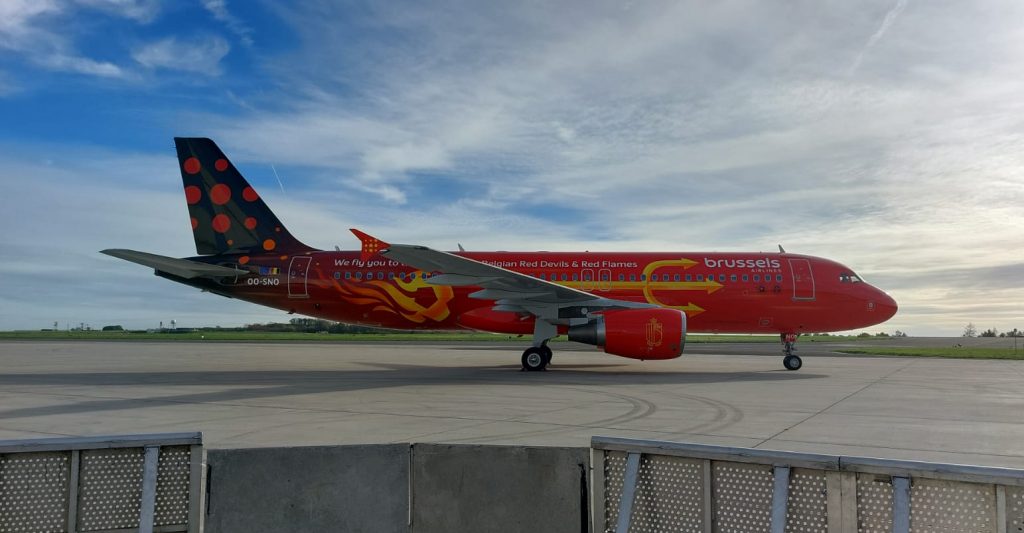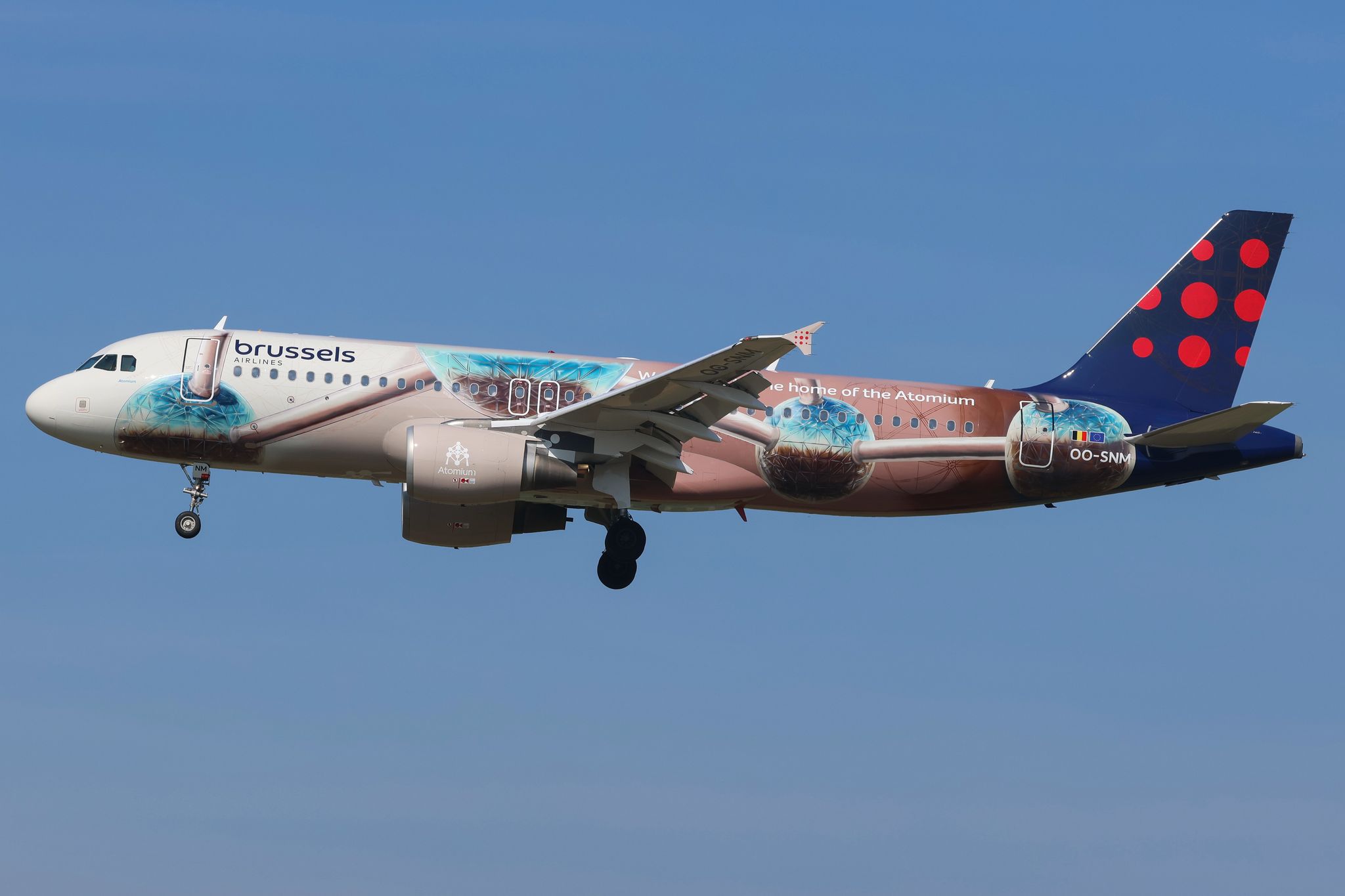
This Sunday at noon, a Brussels Airlines flight that partly runs on synthetic SAF took off from Brussels Airport. As of today, 1 January, Brussels Airport offers this SAF via the NATO pipeline that also supplies regular kerosene.
At 12:11 today, Brussels Airlines flight SN3737 to Malaga, operated by Airbus A320 OO-SNO (Red Devils/Red Flames livery) took off from Brussels Airport with a first: the aircraft flew with 38% sustainable aviation fuel (SAF). This SAF can simply be mixed with conventional fuel, 62% in this case.
SAF emits fewer greenhouse gases than regular kerosene. The aviation sector hopes to partly achieve its climate goals in this way, despite serious doubts raised by environmental groups about this claim.
Flight SN3737 is by no means the first aircraft to fly on SAF. The fuel is already used by about forty airlines worldwide. For example, Air France mixes 1 percent SAF in the kerosene of all flights departing from France.
What is new today is that airlines flying at Brussels Airport can also refuel SAF there, days after Liege Airport. The fuel is supplied by Neste to both airports via the underground NATO pipeline CEPS (“Central European Pipeline System”). This pipeline, which connects France, Germany and the Benelux countries, must ensure that the NATO air fleet can be refuelled quickly, but it is also used for civil aircraft.




[…] Source link […]